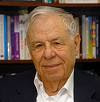From Amitai Etzioni's Notes on January 17, 2008:
http://blog.amitaietzioni.org/2008/01/a-communitarian.html
A Communitarian in the White House?
If the current lineup holds, the Democrats will be represented in the forthcoming national elections by a communitarian. Hillary’s communitarian leanings have been long known. They are especially well spelled out in her book It Takes A Village. She also delivered the keynote address at the 1996 meeting of the Communitarian Network, met frequently with communitarian thinkers, especially William Galston, and read Michael Sandel (and even yours truly).
Barack Obama showed great familiarity with communitarian ideas and thinkers during a meeting at the home of Susan Ness and Larry Schneider in Bethesda, MD. However, given that this was a private meeting, I consider it inapposite to quote what he said. But one is of course free to quote his book The Audacity of Hope, which lays out his communitarian leanings in clear and strong terms:
If we Americans are individualistic at heart, if we instinctively chafe against a past of tribal allegiances, traditions, customs, and cases, it would be a mistake to assume that this is all we are. Our individualism has always been bound by a set of communal values, the glue upon which every healthy society depends. We value the imperatives of family and the cross-generational obligations that family implies. We value community, the neighborliness that expresses itself through raising the bar or coaching the soccer team. We value patriotism and the obligations of citizenship, a sense of duty and sacrifice on behalf of our nation. We value a faith in something bigger than ourselves, whether that something expresses itself in formal religion or ethical precepts. And we value the constellation of behaviors that express our mutual regard for another: honesty, fairness, humility, kindness, courtesy, and compassion.
He added:
In every society (and in every individual), these twin strands- the individualistic and the communal, autonomy and solidarity- are in tension, and it has been one of the blessings of America that the circumstances of our nation’s birth allowed us to negotiate these tensions better than most.
A communitarian perspective recognizes that the preservation of individual liberty depends on the active maintenance of the institutions of civil society where citizens learn respect for others as well as self-respect; where we acquire a lively sense of our personal and civic responsibilities, along with an appreciation of our own rights and the rights of others; where we develop the skills of self-government as well as the habit of governing ourselves, and learn to serve others-- not just self.
David Brooks, the New York Times columnist, who is more conversant with communitarian ideas than any other columnist, recently declared Obama the communitarian candidate, in sharp contrast to Republican John McCain. Brooks’ notes are of special import, as his niche in the New York Times is as the defender of conservative causes and ideas. Brooks writes:
Obama emphasizes the connections between people, the networks and the webs of influence. These sorts of links are invisible to some of his rivals, but Obama is a communitarian. He believes you can only make profound political changes if you first change the spirit of the community. In his speeches, he says that if one person stands up, then another will stand up and another and another and you’ll get a nation standing up. The key word in any Obama speech is “you.” Other politicians talk about what they will do if elected. Obama talks about what you can do if you join together. Like a community organizer on a national scale, he is trying to move people beyond their cynicism, make them believe in themselves, mobilize their common energies.
Brooks contrasts Obama with McCain, noting that “while Obama seeks solidarity with groups, McCain resists conformity. He fights fiercely, though not always successfully, against political pressures in order to remain honest, brave and forthright.” In short, McCain is an individualist.
The elections are a year away. There are going to be many twists and turns, but in the end the American people will choose a communitarian—unless a third party candidate siphons off many Democratic votes, the Supreme Court denies voting rights to many who are poor, less educated, and from a minority background (and hence have no government issued photo ID), Americans are swayed by the thousands of troops coming hope from Iraq (as Bush draws down the surge), the economy picks up and global climate cools down. That is, communitarians should not uncork the champagne quite yet, but they can safely put a bottle or two into the fridge. At least many more people will learn a lot more about communitarian ideas—what more can we ask for…?













No comments:
Post a Comment